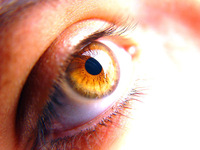12 years to get a proper mental health diagnosis. Learn to diagnose PANDAS and PANS
Pediatric Autoimmune Neuropsychiatric Disorder Associated with Streptococcal infections (PANDAS) & Post-infectious Autoimmune Neuropsychiatric Syndrome (PANS)
Posted on March 10, 2022
 A few weeks after my 6th birthday, I went to bed one night a happy, healthy child, and I woke up the next morning riddled with anxiety, Obsessive Compulsive Disorder (OCD), tics, and a laundry list of psychiatric symptoms I’d never experienced before. I couldn’t sit still for more than a few seconds without moving my body; I could barely write my own name, and I was so afraid of choking that I couldn’t even swallow my own saliva. I saw doctors, therapists, psychiatrists and behavior specialists, and none of them could provide a diagnosis, other than “anxiety.”
A few weeks after my 6th birthday, I went to bed one night a happy, healthy child, and I woke up the next morning riddled with anxiety, Obsessive Compulsive Disorder (OCD), tics, and a laundry list of psychiatric symptoms I’d never experienced before. I couldn’t sit still for more than a few seconds without moving my body; I could barely write my own name, and I was so afraid of choking that I couldn’t even swallow my own saliva. I saw doctors, therapists, psychiatrists and behavior specialists, and none of them could provide a diagnosis, other than “anxiety.”
I did have anxiety. I cried most of the day because the entire world felt like it was crashing down on me. But there was something else.
I had PANDAS: Pediatric Autoimmune Neuropsychiatric Disorder Associated with Streptococcal infections. PANDAS and its sister diagnosis PANS (Post-infectious Autoimmune Neuropsychiatric Syndrome) are infection-mediated neuropsychiatric disorders. That means that when an infection develops in the body, the immune system sends a misdirected immune response to the brain. It causes inflammation in the areas of the brain responsible for emotions, behavior, sleep, and impulse control.
The Seattle Times Mental Health Project features contributed essays from members of our community as part of our Mental Health Perspectives guest column. We invite individuals with personal stories related to mental health to share their experiences that reflect broader issues and concerns in the field. If you would like to inquire about submitting a column, please email mentalhealth@seattletimes.com.
PANDAS and PANS can cause a long list of neuropsychiatric symptoms, and I had almost every single one of them. But because of a lack of awareness among the doctors, therapists, psychiatrists or other professionals caring for me, it took 12 years for me to reach the correct diagnosis.
Throughout those 12 years, every time I was sick I suffered from flare-ups of debilitating anxiety, OCD contamination fears so strong that my hands would be raw and bleeding from washing them, tics that caused my whole body to move in uncomfortable ways, insomnia, and declines in my handwriting and math skills that were so visible on paper that my teachers took note. Most of these symptoms would mysteriously disappear if I was healthy for a long stretch, but as soon as I got sick again, they would come roaring back.
I tried dozens of psychiatric medications, years of different methods of therapy and two psychiatric hospitalizations, none of which were ever effective in treating my symptoms. It wasn’t until I was 18 and flew to Washington, D.C., to see a neurologist who specialized in treating PANDAS and PANS that I finally received an appropriate diagnosis and effective treatment. She prescribed me an antibiotic and a low dose of steroids to treat the inflammation in my brain. Within weeks my symptoms started to disappear.
It was like magic. I had spent over a decade suffering from debilitating symptoms that sometimes kept me out of school and often kept me away from sports, sleepovers, playdates and other normal childhood activities. They kept me from dreaming about what I would do when I grew up, because I never pictured myself growing up. I had spent years in what felt like survival mode: just trying to get through the day without being crushed by the anxiety, the depression, the overwhelming fear that I felt at every single moment.
Had my doctors known about PANDAS and PANS, my symptoms could have been resolved with a quick round of antibiotics or steroids. But the lack of timely diagnosis and treatment meant that once I did start treatment, it was more invasive and less effective than it would have been if I had been diagnosed from the onset of my symptoms. After a few years and a few rounds of treatment, I am the healthiest that I’ve ever been. I no longer worry about my entire life falling apart the next time I get sick, and I don’t have to plan my whole life around my symptoms anymore.
There is still a dangerous lack of awareness about PANDAS/PANS, and related neuropsychiatric disorders among medical professionals. Dr. Sue Swedo, the researcher at the National Institutes of Health who first discovered these disorders, estimates that as many as 25% of children diagnosed with OCD and tic disorders may actually have an autoimmune cause like PANDAS/PANS.
The PANDAS Network, a nonprofit organization that supports families and children through PANDAS/PANS diagnosis and treatment, estimates that these disorders affect 1 in 200 children.
But the number of children actually diagnosed with these disorders is far lower than that. This means that many children just like me are suffering unnecessarily, because their doctors can’t or won’t find the right diagnosis.
PANDAS/PANS is a distinct example of the gap between mental and physical health care in our medical system. Doctors and medical professionals are often focused on one or the other, and when patients fall somewhere in the middle, they fall into this gap, where treatment and understanding can’t reach them.
For most of the 12 years that I suffered from PANDAS without diagnosis, I felt totally alone, because I didn’t know anybody else going through the same thing. Even when I was in the psychiatric ward of the hospital, meeting people suffering from similar symptoms, the treatments that seemed to work for everyone else never worked for me. I felt alone and sometimes I felt abandoned by a medical system that was content to chalk up my symptoms to something familiar, something easily labeled and easily treated with a few psychotropic drugs.
Stories like mine are common among PANDAS/PANS patients. It often takes years for patients to find a doctor who can treat them. For children in Washington it often involves traveling to specialists who are states away.
It shouldn’t take that much time, effort or money for children with PANDAS and PANS to receive appropriate care. We desperately need local providers to learn about diagnosing and treating these disorders so that they can provide the best care to their patients and prevent years of unnecessary suffering that is all too common.
Leah Penney works at a local cat cafe and volunteers with the Northwest PANDAS/PANS Network, a local nonprofit that helps support and advocate for children and families in the Pacific Northwest dealing with PANDAS. She has spent most of her life in Seattle and enjoys cooking, hiking and playing board games with friends.
SEE ALSO:
More Mental Health Articles
Sexual Bias Articles
Race Relations Articles
How Drugs and Alcohol Affect the Brain and Body
WA. Counselor Directory: find a therapist near you
How helpful is this web page to you?
(and how can we can improve this page for you?)
not helpful
very helpful
Other Articles
Complex Trauma
Complex Trauma By Dr. Felicia Mueller, Psychotherapist Complex trauma or Disorder of Extreme Stress Not Otherwise Specified (DESNOS) refers to a condition resulting from exposure... read more
Eating Disorders for the Curious
Several years ago I worked at Swedish/Ballard Medical Center on the Eating Disorders unit. It was a 10 bed psychiatric unit mostly occupied by women struggling with life threatening illness of anorexia... read more
What is Domestic Violence?
What is the Crime of Domestic Violence in Washington State? Definitions (C) (3) "Domestic violence" means: (a) Physical harm, bodily injury, assault, or the... read more
What is EMDR? Eye Movement Desensitization and Reprocessing
EMDR, the acronym or abbreviation for Eye Movement Desensitization and Reprocessing, is used to relieve the symptoms of post-traumatic stress disorder (PTSD) and other mental health problems, o... read more

.jpg)


